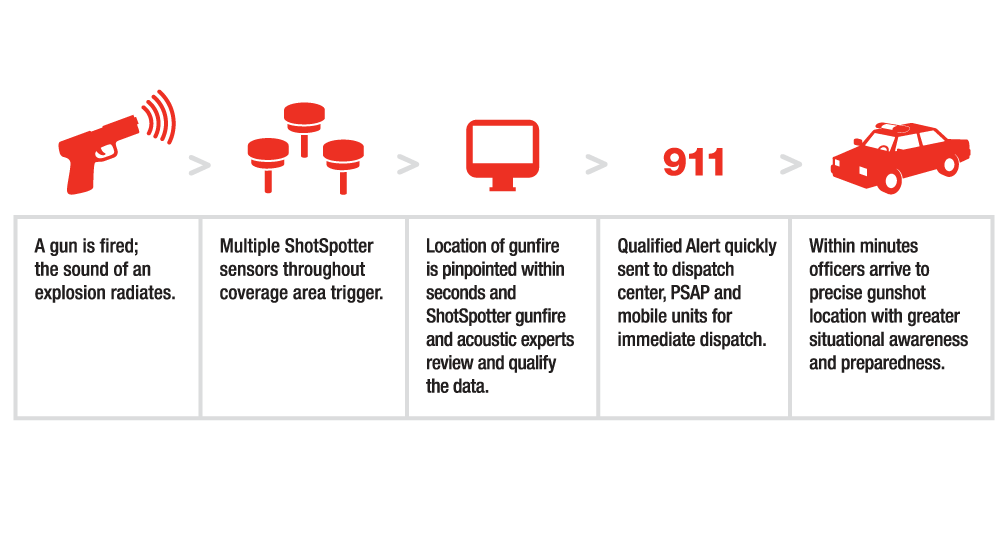Baltimore city officials scrapped a plan to install a gunshot detection system in parts of Baltimore, a City Hall spokesman confirmed. Meanwhile, the mayor is getting ready to re-ignite the push to equip police with body cameras.
About a year ago, the city announced plans to introduce ShotSpotter, which uses acoustic sensors to determine where gunshots are fired in east and west Baltimore. The proposal called for the technology, which is used in cities around the U.S., to work with CitiWatch. Cameras from that system would be able to focus on areas where ShotSpotter picked up gunshots, the plans said.
It was determined that the crime fight would be adversely impacted by proceeding with the purchase.
But the city reversed course after understanding the true cost and man hours required to implement the program, mayoral spokesman Kevin Harris said. The news was first reported by the Baltimore Sun’s investigative team.
“After evaluating the resource allocation need for the installation, training, and monitoring of such an extensive program; it was determined that the crime fight would be adversely impacted by proceeding with the purchase,” Harris said in an email.
With the reversal, the city waved off a $305,000 state grant that would’ve been provided for installation of the program.
Mayor Stephanie Rawlings-Blake has said the city needs more resources for crimefighting efforts, even taking the plea to a White House panel last month. The reversal on ShotSpotter comes as officials are gearing up to re-introduce legislation that would outfit police officers body cameras to record their interactions with the public.
Amid protests over police brutality in Ferguson and Staten Island, Rawlings-Blake vetoed a bill that would have created a body camera program in Baltimore. She said the two-page bill wouldn’t pass legal muster because it was too vague, but vowed to bring body cameras to the city. Since then, a working group has been meeting to take a more in-depth look at the body camera issue.
Harris told Technical.ly Baltimore the panel should present recommendations about what a body camera bill should include “in the next couple of weeks.” Then, the Mayor plans to introduce a bill to the City Council that would fund the body camera program.
Companies:
Baltimore Police Department
Join the conversation!
Find news, events, jobs and people who share your interests on Technical.ly's open community Slack

Baltimore daily roundup: Gen AI's software dev skills; UpSurge Tech Ecosystem Report; MD service year program

Baltimore daily roundup: Mayoral candidates talk tech and biz; a guide to greentech vocabulary; a Dutch delegation's visit

Baltimore daily roundup: An HBCU innovation champion's journey; Sen. Sanders visits Morgan State; Humane Ai review debate


